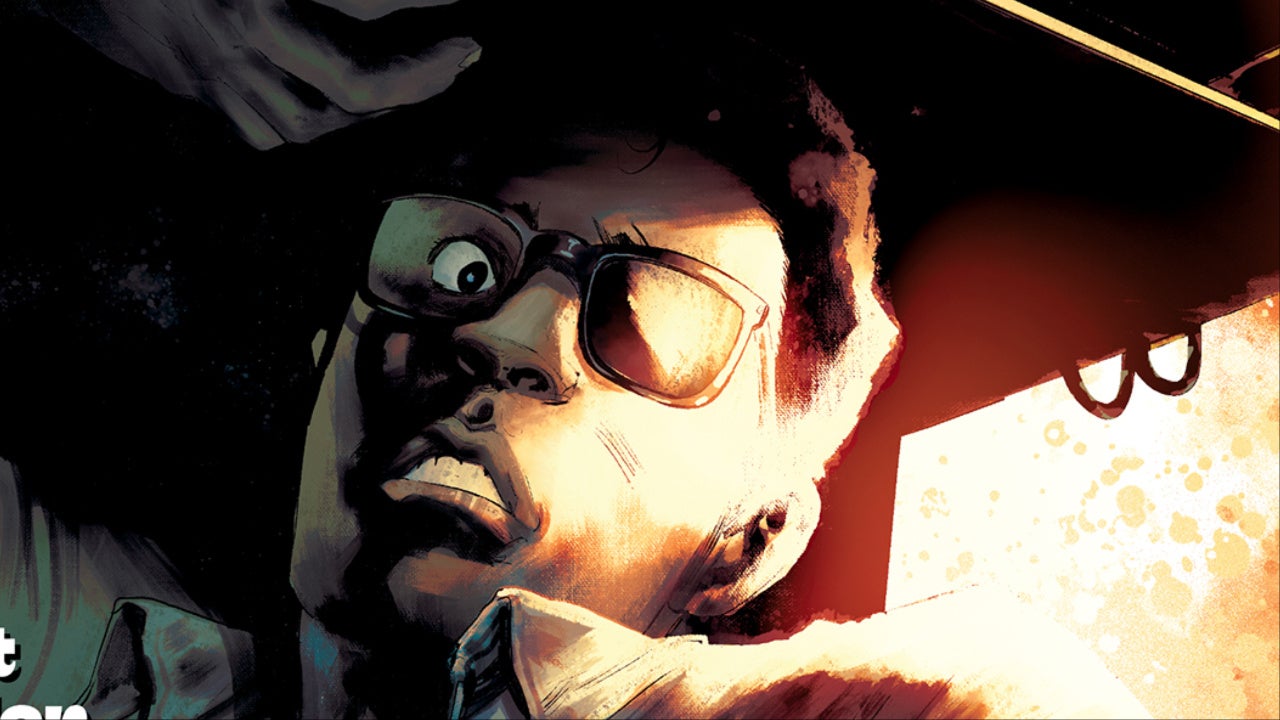This column contains spoilers for Firefly.
A captain, a first mate, a pilot, a mercenary, a mechanic, a companion, a preacher, a doctor and a telepath walk into a bar. In it, they make up the shiniest damn show that you ever did see. And they did so despite the hurdles that they faced. Those hurdles existed both in the show and out, with the crew of Serenity fighting to keep a tiny corner of space as their home while the series’ network, Fox, seemingly did everything it could to keep the show from succeeding.
Ironically, the struggles in Firefly — outcasts just trying to find their own space in the ‘verse — mirror the struggles the series faced during production. Fox’s list of quibbles with Firefly was not short. Nathan Fillion’s Captain Malcolm Reynolds was too dark a character; they didn’t want the series to air in widescreen as it was shot; the first two episodes were aired out of order; it was marketed by the network as a “wacky genre comedy”… for a company that paid to produce the damn thing, they sure went out of their way to see it fail.
And “fail” it did. At least if your grading system begins and ends at ratings and network trust.

Firefly followed the crew of the spaceship Serenity as they struggled to build a life out in the black outside of Alliance rule. Some lived at peace under the Alliance, but those who found themselves at odds with the authorities — at least in the case of Serenity’s crew — did so not because they thought that government was bad, but because the Alliance wanted total control of space and those who occupied it. Except, of course, the ugly parts. Seeking freedom from the Alliance and begrudgingly protecting those who found themselves on the outer rim made up the majority of Firefly’s core conflicts. That and the mystery surrounding the girl in the box (that’s River Tam, played by Summer Glau) and how she could read minds.
The series would be cancelled before its first season even ended, leaving the cast and crew devastated and the mystery of River Tam’s powers unanswered. Whether you watched the extras on the box set or have been at a convention with any member of the cast in the last 20 years, you’ve heard the stories of the team continuing to shoot despite knowing the announcement was coming, and the heartbreak that came when it did.
That cancellation ended up being Firefly’s own Battle of Serenity Valley. But, rather than end a war, it mostly just started one.
“We’re still flying.”
“That’s not much.”
“... It’s enough.”
Firefly had everything working against it. Had it been made today, it probably would have joined the concerning and growing list of shows that became tax write-offs before viewers even had a chance to decide if they were for them or not. But, 2002 was a different time, and fans did get to see the series (even if they saw it in the wrong order), and many of them never let it go.
Only 11 of the produced 14 episodes aired on Fox due to the untimely cancellation. But, what 20th Century Fox’s television division couldn’t have predicted was that fan demand for the series was so high that the DVD pre-sale sold out in 24 hours. The ratings struggled, but many have pointed out that was due to Firefly being trapped in the Friday night death slot rather than a lack of interest in the series. The show’s target demographic simply wasn’t home on Friday nights. (DVR was still in its early days, with the tech having debuted in 1999.)
Fox and other networks didn’t take that as a sign to capitalize on the love for the series, but Universal did. Thanks to early support from Universal studio executive Mary Parent and the strong DVD sales, the Firefly crew would see second life in the feature film, Serenity. The movie would go on to sell out three premiere screenings at its debut festival, receive strong early reactions from critics and open to a great amount of fan excitement thanks to a grassroots marketing campaign.
It would then go on to underperform at the box office.
“May have been the losing side. Still not convinced it was the wrong one.”
From a monetary perspective, Firefly was a failure. From that same perspective, it was resurrected a year later just to fail again. But if a failure is all it was, then how was it still a part of the cultural conversation when I first saw it a decade after it first aired? How does it continue to fill panel rooms at cons? Why can’t the cast do anything without being asked about Season 2? Why am I writing a column about it 20 years later, and why are you here reading about it?
Firefly may have been set up to fail in the same way that the Browncoats of Serenity Valley would, but in a way that makes the series feel all the more special to those of us who adore it. We all found something we could connect with in the show, whether that’s a love for bands of misfits who end up as found family or a connection to the idea that no one can take the sky from us no matter how hard they try. Watching the series remain in the cultural conversation despite all the odds stacked up against it only makes its fans love it harder.
Star Trek may have pioneered the final frontier, but Firefly gave us our first live-action space western. It married the ideals of the old west like “I look out for me and mine, that don’t include you ‘less I conjure it does,” and brought us a hardened old vet who just wants to live in peace without being bothered by the sometimes tyrannical government or having to take care of all these orphans who keep landing in his lap. By centering on Malcolm Reynolds and the misanthropy that tried to hide the fact that he can’t not be a hero, Firefly set the foundation for what might have been just any old western.

Instead, the show managed to marry the future motif with historical themes and offer an amalgamation that would showcase that no matter how far civilization progresses, there will always be tyrants. And, so long as those tyrants exist, there will always be folks who would much rather be eating strawberries but will probably help protect those in need anyhow.
Browncoats never let go of Firefly because stories are more than just dollar signs. It’s overly romantic to say that the (space) west was won by cranky cowboys with hearts of gold and weird-ass found families because that’s what people connect with, ratings and dollars be damned. No matter how many times I talk about art being more important than money, the people currently in charge of our media will always make decisions based on dollars and cents. Besides, isn’t romanticism kind of the point of westerns anyway?
There’s nothing more timeless than a power struggle between a quietly evil government and those who seek freedom from it. It’s that fact, coupled with Firefly’s eclectic and complicated crew, that has kept the series afloat 21 years later. We’ll never see a Season 2, but the one-hit wonder lives on the dvd shelves of browncoats across the world; to stream on hulu; and has even been to space once.
Why? Well, because you can’t stop the signal.




